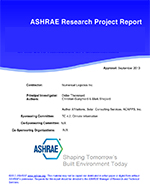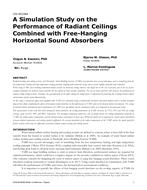In the recent decades cleanrooms have found growing applications in a broad range of industries such as pharmacy and microelectronics. Concerns about negative effects of the contaminant exposure on human health and product quality have motivated many research efforts towards understanding of airflow and contaminant dispersion in these environments. Occupants and their movement are one of the main parameters which may impress the indoor airflow pattern and the resultant dispersion of airborne particles, especially in ultra-clean environments. The aim of this paper is to study numerically the airflow induced by a moving operator and its influences on the effectiveness of ventilation system using moving mesh technique. The results show that movement of an operator can induced new recirculation zones which are susceptible to entrain and entrap the particles released from contamination sources. In addition, strength of the induced recirculation zones highly depends on the personnel velocity. Introducing an effectiveness index for the ventilation system, the effect of an operator movement is also analyzed quantitatively and its results support the quantitative discussions. This research and its results provide a better understanding about the effect of personnel movement on airflow pattern and airborne contaminants dispersion in cleanrooms and may find useful applications in designing more effective ventilation strategies.
Citation: 6th International Conference on Energy Research and Development, State of Kuwait, March 14–16, 2016
Product Details
- Published:
- 2016
- Number of Pages:
- 8
- Units of Measure:
- Dual
- File Size:
- 1 file , 3.8 MB
- Product Code(s):
- D-ICER16-06


